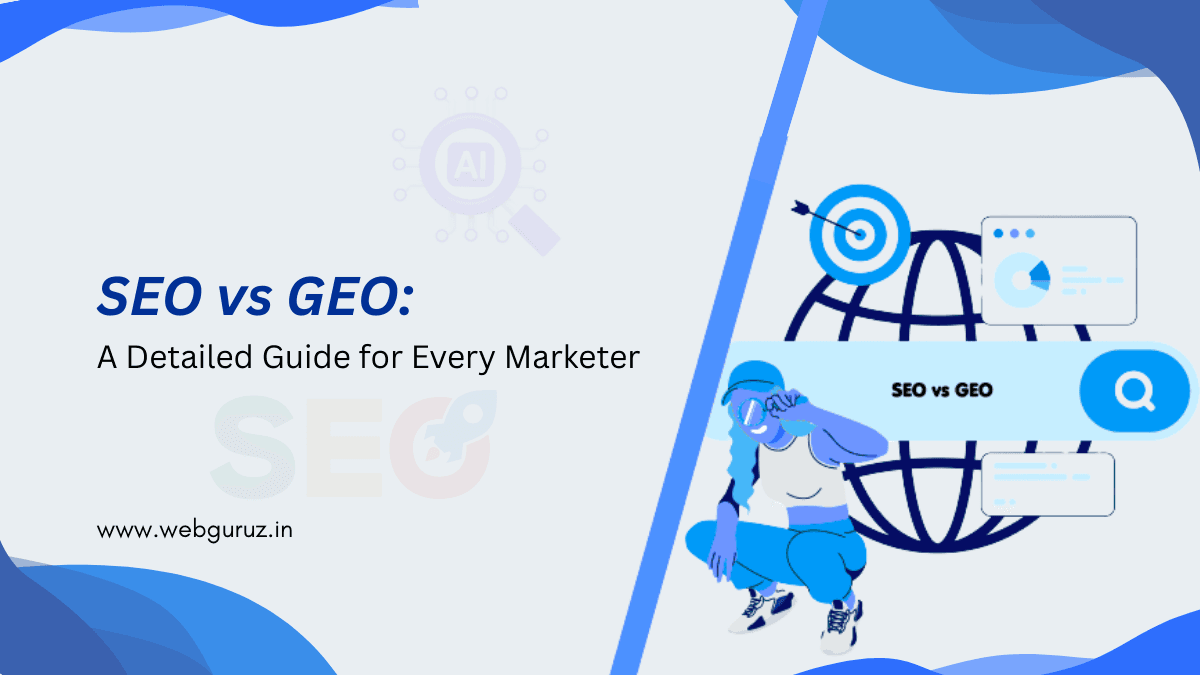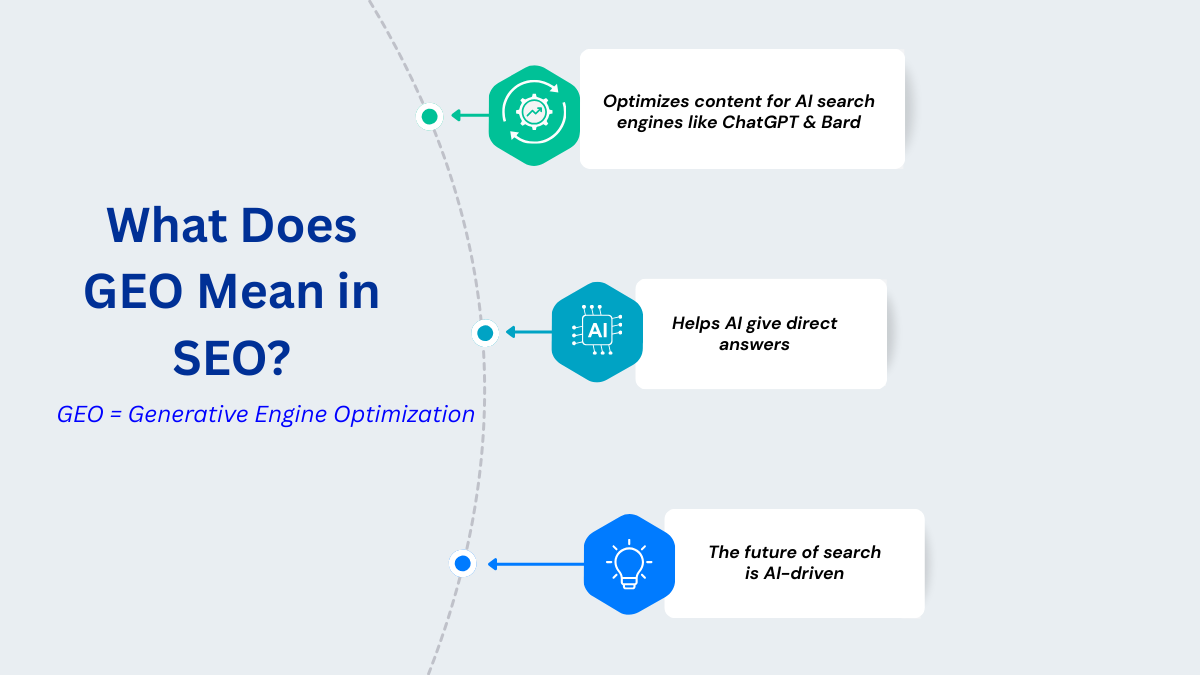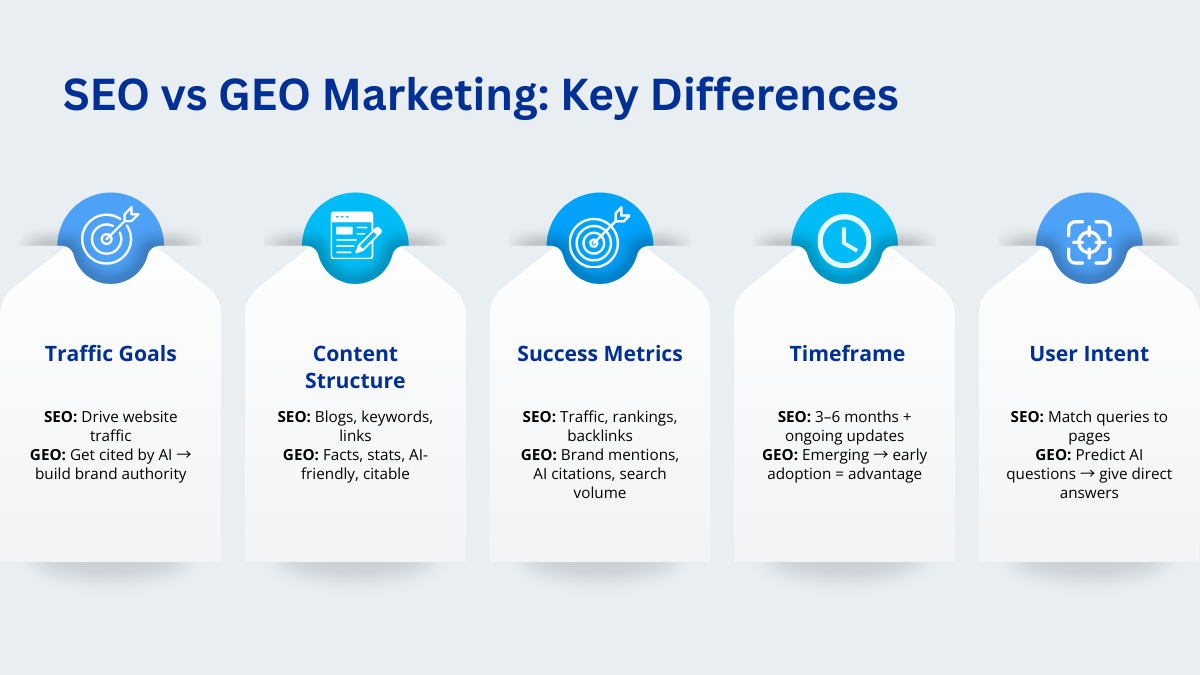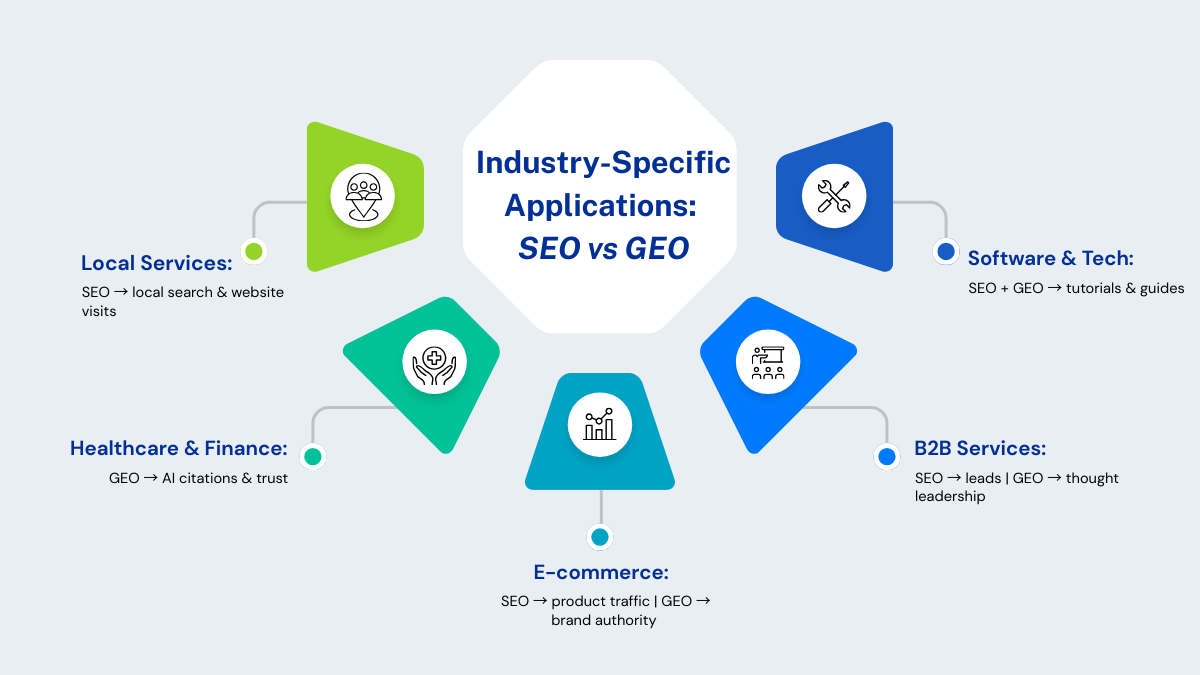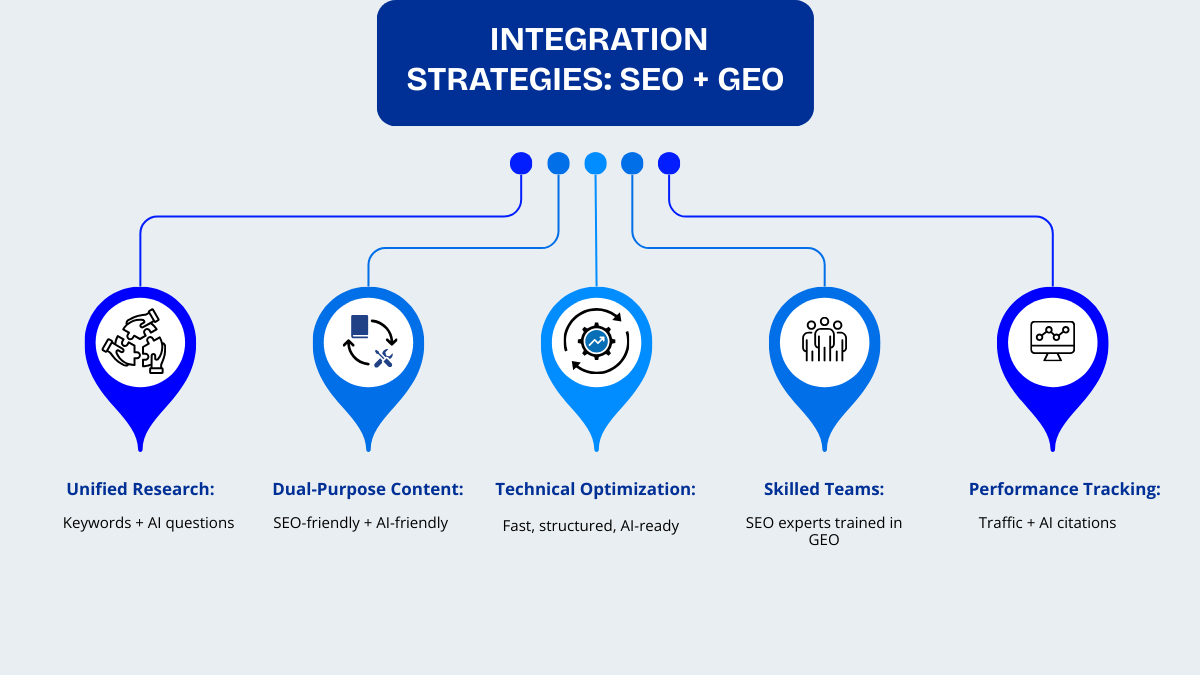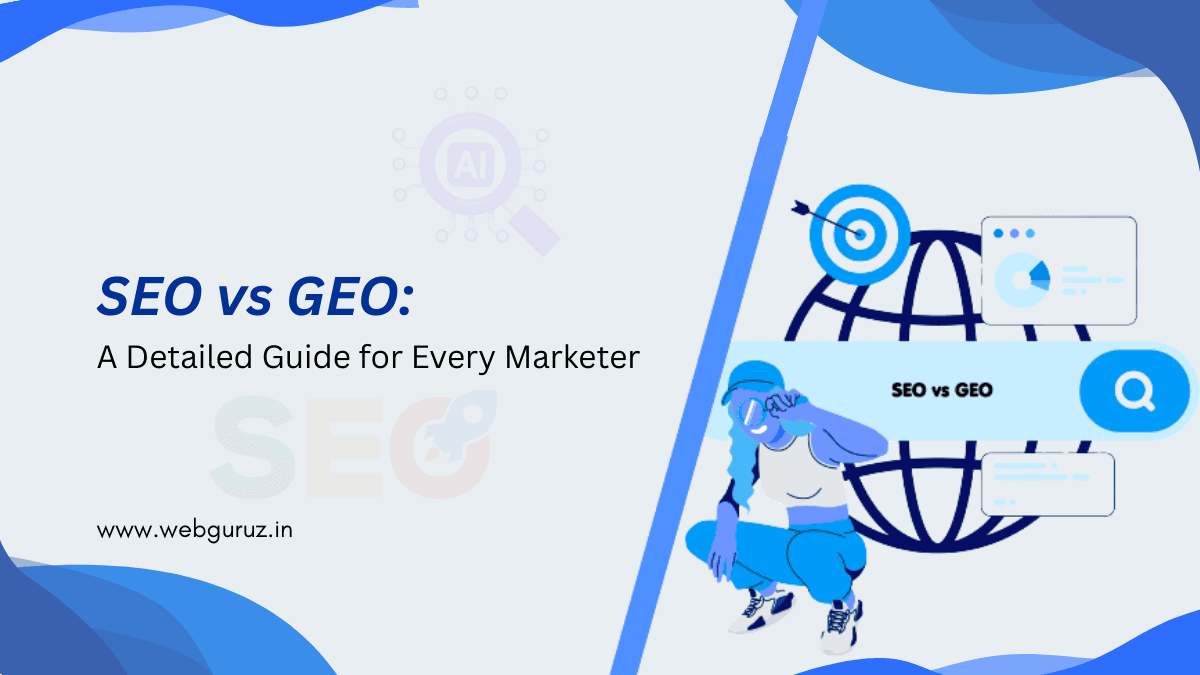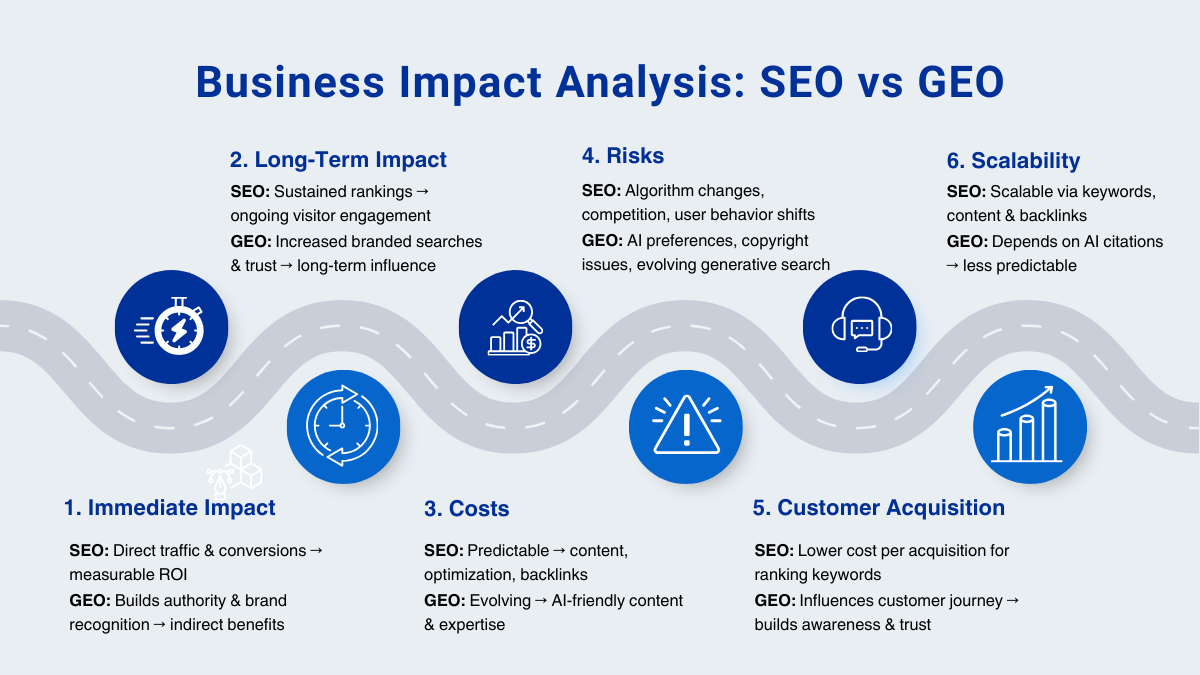
Understanding the business impact of SEO vs GEO requires looking at both immediate and long-term effects on your marketing goals. Each approach offers distinct advantages and challenges that can significantly affect your bottom line.
Traditional SEO provides measurable, direct business impact through website traffic and conversions. When your pages rank highly for relevant keywords, you can track visitor behavior, conversion rates, and revenue attribution. This clear return on investment makes it easier to justify SEO budgets and demonstrate value to stakeholders.
The business impact of GEO is more subtle but potentially far-reaching. When AI engines cite your content, you build authority and brand recognition without necessarily driving immediate traffic. This can lead to increased branded searches, improved reputation, and long-term trust building with your target audience.
Cost considerations differ significantly between these approaches. Traditional SEO requires ongoing investment in content creation, technical optimization, and link building. The costs are well-established, and businesses can predict their SEO investment needs. GEO optimization may require different types of content creation and expertise, and the cost structure is still evolving as the field matures.
Risk factors also vary between SEO vs GEO strategies. Traditional SEO faces risks from algorithm updates, increased competition, and changing search behaviors. GEO faces uncertainty about AI engine preferences, potential copyright issues, and the evolving landscape of generative search tools.
Customer acquisition costs can be affected differently by each approach. SEO typically provides a lower cost per acquisition for businesses that rank well for commercial keywords. GEO may not directly drive conversions, but it can influence the customer journey by building awareness and trust before users visit your website through other channels.
The scalability of these approaches also differs. SEO strategies can be systematically scaled by targeting more keywords, creating more content, and building more backlinks. GEO scaling is less predictable because it depends on how AI engines interpret and cite your content across various query types.





